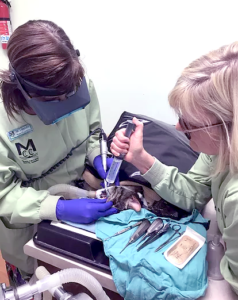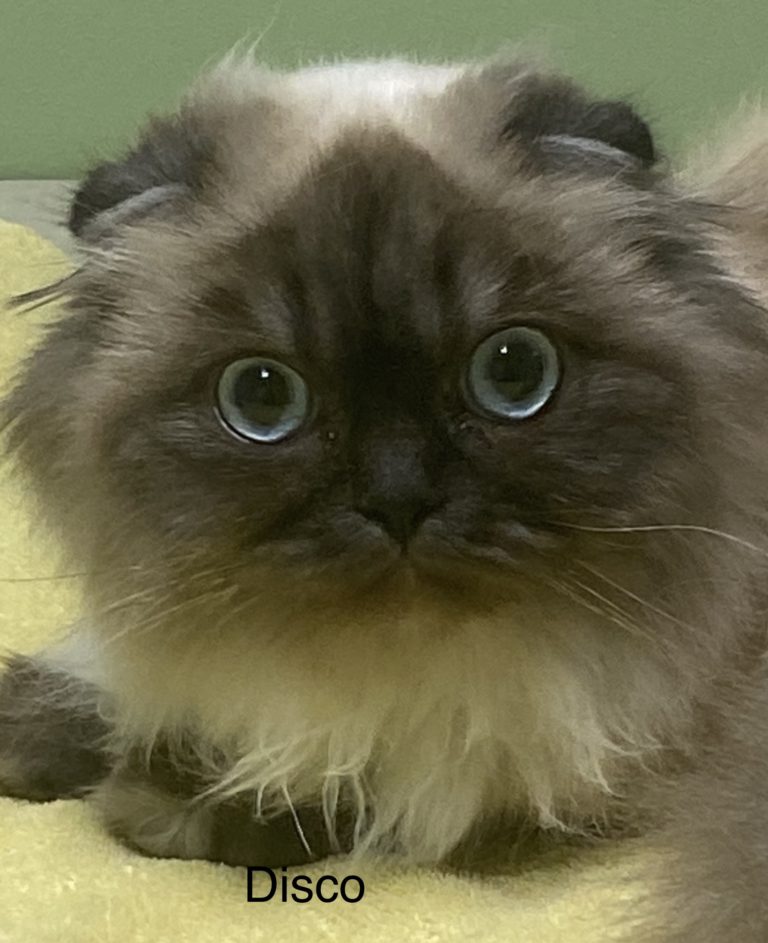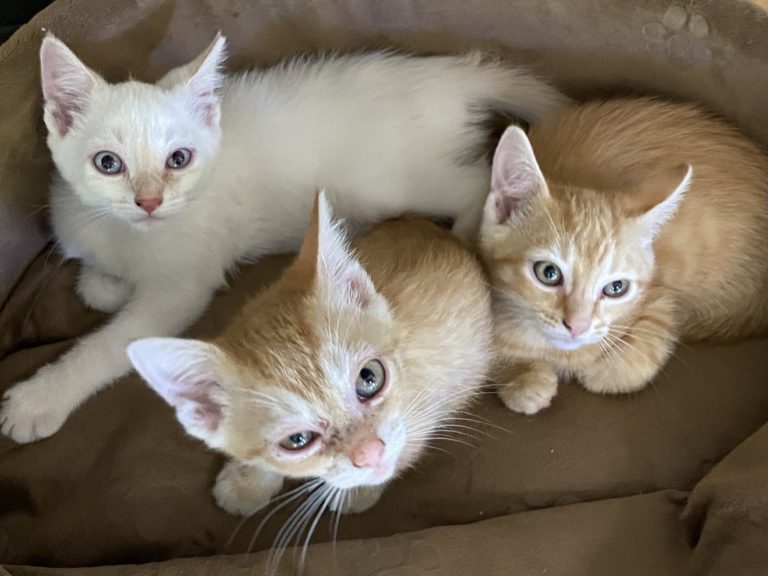Examinations
Every time your cat comes into Metro Cat Clinic they are examined formally and informally. We are always looking out for the health of your cat.
Formal examinations are usually broken down into three types:
Before You Come In:
- Make an appointment. CLICK HERE to make one.
- Get a fresh fecal sample in a sealable plastic bag.
- If your cat is anxious about visits to the vet clinic*, please call us for prescription to be given at home a couple of hours before your appointment time. The article “Getting Your Cat to the Veterinarian” is a great resource.
- Don’t forget to have your cat in a carrier.
- If you are a new client please bring all of your cat’s medical records and lab/bloodwork results.
*MCC has taken the steps to be certified by the AAFP as a Feline Friendly Clinic. The Clinic is designed to make cats feel secure. We are trained to handle your cat in a calm and safe manner. We make every effort to keep your cat as comfortable and secure as we can. Sometimes this may be some sort of sedation that will help prevent some of the “wind up” nervousness.
Illness Exams
We take the whole cat into consideration when attempting to diagnose the symptom(s) you, the guardian and companion, have a concern about.
We start with your concerns and observations as we ask you questions. Patient history is also important. And we take seriously the role of nutrition in the health of your cat. Knowing what food, treats, water, and amounts are important information for us know.
The Physical Exam starts while your cat is still in the carrier. We are looking at the body posture- is your cat nervous? (fight, flight or freeze?) Does your cat show pain? Are the eyes dilated? These and other clues that will help us know how best to handle your cat in the most stress free way possible.
The physical exam starts with the face and ends with the rear and the feet.
We are able to do most bloodwork in-house and highly recommend this as part of any illness exam. Fecal testing, Blood pressure, Urinalysis,Radiology and limited Ultrasound are all available at exam time.
We are in partnership with a traveling Sonographer and can set up an appointment time to have that service performed in clinic so your cat does not have to travel to a different location.
If needed, there are many board certified Veterinary Specialist in the Birmingham area whom we can set up a referral if your cat needs more in depth diagnostic or treatments than a general practice such as MCC can provide. And Auburn, Georgia, and Mississippi State Vet Schools are all about the same distance in travel from the Birmingham area.
Illness exams may take an hour or more, depending on the diagnostic tests, discussion of results, treatments needed, and medications needed to go home. Please make plans accordingly or make plans to do a “drop off” and we can get in touch as we access the diagnosis and treatment plan.

Annual / Wellness Exams
Even indoor only cats develop dental disease, kidney disease, grooming problems, and yes, even parasites. We want to help you have the longest relationship with your Feline Family as you can. Prevention is the name of the game!
Did you know that cats lack the number of neurons that we humans have? Dogs have twice the number of neurons that cats have! That said, our feline friends may not show pain or signs of illness until the condition is well advanced.
- Cats 1-8 years old : Once a year.
- Cats over 10 : Twice a year. Cats between 8-10 may need to seen twice yearly depending on health status.
- Geriatric cats (those over 15) should be seen 3-4 times a year, again depending on health status.
At each exam, we will ask you, the guardian/companion of the cat, various questions relating to any concerns you have, eating habits, litter box habits, social structure, and what you are currently feeding your cat. We also will need whether your cat is indoor, outdoor, how many other cats/dogs/ persons/ other creatures are in the house.
We do recommend a baseline bloodwork analysis for all healthy cats before they are 5 years old. Knowing the Retrovirus (FeLV/FIV) status of your cat is important information, also.
Vaccination, the type, the frequency, are all dependent on your cat’s life style and age and are individually tailored according the recommendations of the AAFP
- WORMS We advocate for a general deworming each year. Even our indoor kitties can be mighty hunters and keep the bug and / or small rodent indoor population under control.
- FLEAS Routine flea prevention is also important, even for indoor cats (yes, we routinely find fleas on indoor only cats. It is part of each exam to run a flea comb through the fur looking for evidence of such creatures). We have handouts on the Flea Life Cycle and the many problems this pest can cause your cat, and you! Luckily, there are many effective flea preventative regiments. (Please be aware of the many OTC flea medications- many do NOT work, and many can be harmful to your cat)
- HEARTWORMS For outdoor cats and even those that go out on a porch, deck, or supervised outdoor time also need to be on heartworm prevention since mosquitoes, which transmit Heartworms, are potentially in those areas. In cats, this is a lung issue more than heart issues. It is also not treatable and can cause sudden death (anaphylactic reaction). This is a preventable disease with proper use of heartworm prevention. This is a year round necessity here in the Birmingham area.
- Other parasite issues: ear mites, mange, and intestinal.
A small microchip implanted under the skin is a smart way to make sure your cat is always able to be identified. Even indoor cats have been known to get outside, either accidentally, on purpose or due to a natural disaster. It is a simple procedure and is not that expensive.
We love to discuss the nutritional needs of cats! Originally a dessert animal and an obligate carnivore, their dietary needs are unique. And the genetic make up of cats has hardly changed from that of the first known domesticated at from 10.000 years ago. Most cats are solitary hunters as well as feeders. We can help you devise a feeding structure that will help mimic how they would normally eat while understanding the restraints of being indoors.
We can help you devise a weight loss or weight gain program as needed.

Kitten Exams
We LOVE seeing those cute kittens come to us and watching them grow into healthy adult cats!
A healthy kitten is the building block for a healthy adult cat. Kittens have different requirements and needs based on age and healthy status. Nutrition, cat care and environmental enrichment, these are discussions we have with you as well as the physical exam, parasite check and vaccines.
Based on your kitten’s age, the exam/vaccination schedule is different. Starting at 4 weeks and up to 16 weeks we have devised a schedule.
Bring any vaccination, deworming, lab work and a fecal sample with you at time of first kitten exam.
We recommend all kittens be tested for the Retro Viruses (FeLV/FIV). Please bring a fresh fecal sample with you (see above)
Kitten vaccinations are based on the age of your kitten at presentation and any previous vaccines. We follow the guidelines of the AAFP.
- WORMS We advocate for a general deworming each year. Even our indoor kitties can be mighty hunters and keep the bug and / or small rodent indoor population under control.
- FLEAS Routine flea prevention is also important, even for indoor cats (yes, we routinely find fleas on indoor only cats. It is part of each exam to run a flea comb through the fur looking for evidence of such creatures). We have handouts on the Flea Life Cycle and the many problems this pest can cause your cat, and you! Luckily, there are many effective flea preventative regiments. (Please be aware of the many OTC flea medications- many do NOT work, and many can be harmful to your cat)
- HEARTWORMS For outdoor cats and even those that go out on a porch, deck, or supervised outdoor time also need to be on heartworm prevention since mosquitoes, which transmit Heartworms, are potentially in those areas. In cats, this is a lung issue more than heart issues. It is also not treatable and can cause sudden death (anaphylactic reaction). This is a preventable disease with proper use of heartworm prevention. This is a year round necessity here in the Birmingham area.
- Other parasite issues: ear mites, mange, and intestinal.
We highly recommend your kitten/cat be microchipped. This is a simple procedure and most kittens do not react to it any more than they do a regular vaccination injection.
We love to discuss the nutritional needs of kittens! Originally a dessert animal and an obligate carnivore, their dietary needs are unique. And the genetic make up of cats has hardly changed from that of the first known domesticated at from 10.000 years ago. Since most cats are solitary hunters as well as feeders, we can help you devise a feeding structure that will help mimic how they would eat while understanding the restraints of being indoors.
At the kitten exam we will discuss diet, feline enrichment, grooming, appropriate scratching and nail care (MCC does not perform elective declawing surgery.) Read a great hand out at https://catfriendly.com/scratching
If you are a first time cat owner, we also have a great handbook with all sorts of interesting Cat/Kitten information and can help steer you to other web site articles and YouTube videos.

